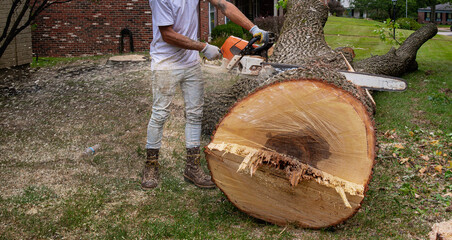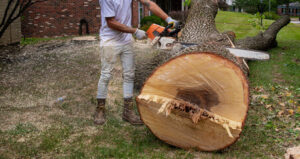Concrete Contractor is a person who has the skills and knowledge to work with concrete. They can do concrete remodeling and design projects for their clients. They can also handle large commercial construction projects.
Before choosing a concrete contractor, it is essential to know what your priorities are. For example, do you prefer quality work or low prices?
A concrete contractor must meet certain qualifications to be hired for a project. This includes the ability to work well with others and have good communication skills. It’s also important that they be reliable and have the right tools for the job. They should have a background in concrete construction and be familiar with the different types of materials that are used in concrete projects. They should also be knowledgeable about construction codes and safety regulations.
Depending on the type of project, a concrete contractor may need to be licensed and insured. This is particularly true for projects that are large or complex. It’s important to verify the contractor’s license and insurance before hiring them, as this will protect you from any liability should an accident occur on the job site. It’s also a good idea to look for contractors who are ACI-certified, as this indicates that they have undergone additional training and have specialized knowledge in the field of concrete.
There are several ways to become a concrete contractor. Some have a bachelor’s degree in civil engineering or a related discipline, while others learn through a combination of apprenticeships and on-the-job training with more experienced masons. Masons who wish to operate their own individual businesses can also choose to attend trade schools that offer specialized programs in masonry and concrete construction.
It’s also important that a concrete contractor have strong business management skills to run their own company. This involves knowing how to manage cash flow, bid on jobs and submitting accurate estimates. Concrete contractors who want to expand their business should also consider taking courses in business law and accounting.
One of the most important qualifications for a concrete contractor is their years of experience in the industry. This will help them understand the different aspects of their job and what they need to do to get the best results. They should also be able to communicate the technical details of concrete projects clearly, so that their clients can make an informed decision. For example, concrete projects like flooring, driveways, patios and sidewalks can entail highly technical information that needs to be conveyed properly.
Licenses
It is important for a concrete contractor to be licensed before starting a new business. This is because many cities and states have licensing requirements for contractors. Licensing will ensure that the company is following local laws and has proper insurance coverage. In addition, a license will show that the company has been vetted by the state and is reputable.
Licensing requirements vary by jurisdiction, but a general concrete contractor license requires at least a high school diploma and a valid driver’s license. Additionally, a contractor must be 18 years old or older and be a US citizen or legal resident to apply for a license. Applicants also need to submit fingerprints and pass background checks. They must also have experience in construction and concrete work.
A concrete contractor must have the ability to read blueprints and understand the structure and dimensions of a building or other project. This helps them choose the best concrete mixtures and techniques for each job. They also work closely with architects, engineers, and other construction professionals to ensure that the concrete works well with the overall design.
In addition to their technical knowledge, a concrete contractor must be able to manage the construction site efficiently. This includes scheduling deliveries, monitoring the weather, and ensuring that all workers are protected from falling debris. It is also important for a contractor to be able to meet deadlines and budgets.
Another essential requirement for a concrete contractor is having the right tools. These include mixers, trucks, rebar cutters, and pumps. A contractor should know how to operate each tool and use them properly to get the most out of them. They should also be familiar with the latest safety standards for working with concrete.
A concrete contractor must also have a valid driver’s license, social security number, and contractor’s liability insurance. They should also have a permit to operate their business in their chosen location. This is usually obtained from the city or county and requires that the construction meets zoning regulations. In addition, the contractor must have liability and worker’s compensation insurance, which covers property damage and injuries sustained on the job.
Insurance
Having the right business insurance is an important part of being a concrete contractor. It is not only required by many states, but it also helps your clients feel comfortable allowing you to work on their property. In fact, most clients will refuse to work with a contractor that does not carry adequate insurance coverage.
As a concrete contractor, you are exposed to a variety of risks that could result in costly claims or lawsuits. These costs can devastate a small business and even cause it to close. Fortunately, there are affordable options for concrete contractors to help protect their businesses and the financial security of their employees.
General liability insurance, or CGL, is an essential concrete contractors policy that provides coverage for third-party bodily injury or property damage. For example, if wet concrete spills on a client’s car and causes damage, this type of insurance would cover the repair costs. In addition, it would also provide legal fees and settlements associated with a lawsuit.
If your concrete contracting firm has any employees, workers’ compensation insurance is also an important investment. This type of insurance covers medical expenses and lost wages if an employee is injured while working on a project. It is typically included in your commercial general liability insurance policy, but you may want to consider adding it to your policy separately.
Business auto insurance is another coverage that every concrete contractor should have. This type of policy provides coverage for your company vehicles, including those owned by employees. It is also important to consider adding hired and non-owned auto insurance to your policy if your employees ever use personal vehicles for business-related reasons.
An independent insurance agent can assist you in building a concrete contractors policy that meets your needs. They will look at your business’ unique risk exposures and determine the best policies for you. In addition, they can shop and compare quotes from multiple insurance carriers to find you the best mix of cost and coverage. They can also provide information about your safety certifications, completed training programs and other factors that will help reduce your risk and premium.
Reviews
Concrete contractors have a unique skill set that allows them to create beautiful and functional structures. This type of construction requires a lot of planning and precision. When looking for a concrete contractor, be sure to find one who is licensed and insured. In addition, you should check out their portfolio and read online reviews.
Once you’ve found a concrete contractor, make sure to get all of the details in writing. This includes the cost of the project, a timeline for the work to be completed, and who will be performing the work. It’s also important to ask about any warranty that comes with the work.
A good concrete contractor will be able to answer all of your questions and concerns. However, if you’re unable to find the information you need, then it’s time to move on to another candidate.
Another question to ask a concrete contractor is when they can start working on your project. It’s important to find a concrete company that can begin the job as soon as possible, so you don’t have to wait too long for the final results.
One way to help streamline the construction process is by using a project management software that is designed specifically for concrete subcontractors. This can help them organize and track their financial data and provide valuable insight to ensure a successful outcome. For example, a subcontractor-focused software solution like eSUB can help concrete contractors collect the valuable data from their foreman’s daily reports and seamlessly transfer it into Cost-to-Complete or Labor Efficiency reports.


